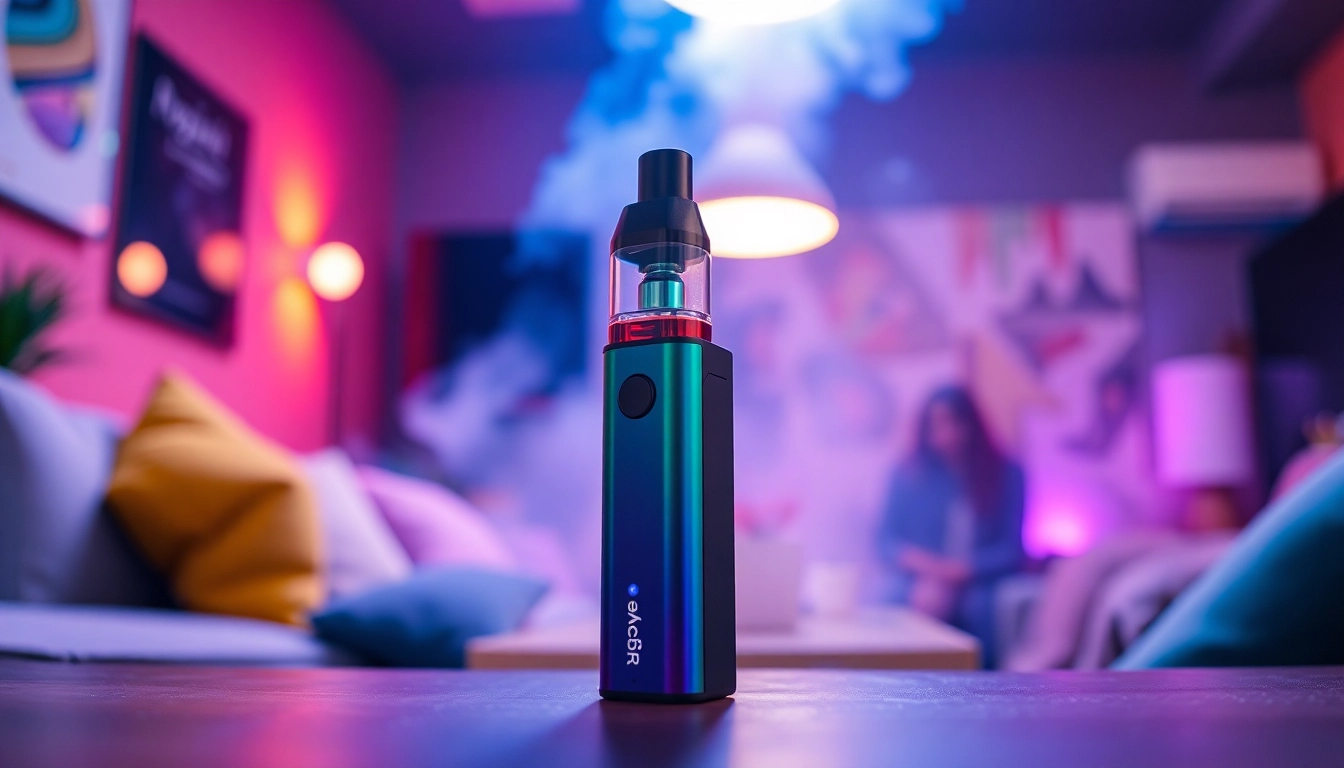
Understanding Depression: An Overview
Depression is a pervasive mental health condition affecting millions of individuals worldwide. It is characterized by a persistent feeling of sadness and loss of interest that can significantly interfere with daily activities. As we delve into the detail of this complex disorder, it becomes imperative to understand its definition, types, symptoms, and the broader implications it holds for those affected. For anyone grappling with feelings of hopelessness or anxiety, accessing resources that speak directly to their needs can be invaluable. This article aims to serve as a comprehensive guide to understanding depression.
What is Depression?
Depression, or major depressive disorder, is more than just feeling sad or going through a rough patch. It is a serious medical illness that impacts how you feel, the way you think, and how you act. The World Health Organization classifies depression as a leading cause of disability and poor health globally. Diagnosing this condition involves evaluating the persistent nature of symptoms that last for weeks or even months, disrupting one’s ability to function.
Types of Depression
Understanding the various types of depression is essential for appropriate treatment and management:
- Major Depressive Disorder (MDD): A severe form of depression characterized by significant impairment in daily functioning.
- Persistent Depressive Disorder (Dysthymia): A chronic form of depression lasting for at least two years, with symptoms typically less severe than MDD but more enduring.
- Seasonal Affective Disorder (SAD): A type of depression that occurs at specific times of the year, commonly in winter when sunlight is scarce.
- Postpartum Depression: A serious mood disorder that can affect women after childbirth, marked by feelings of extreme sadness and anxiety.
- Bipolar Disorder: Characterized by alternating episodes of depression and mania, leading to shifts in mood, energy, and activity levels.
Common Symptoms of Depression
The symptoms of depression can vary widely, but they often include:
- Persistent sadness or low mood.
- Loss of interest or pleasure in activities once enjoyed.
- Changes in appetite or weight.
- Sleep disturbances, such as insomnia or oversleeping.
- Fatigue or low energy.
- Difficulty concentrating or making decisions.
- Feelings of worthlessness or excessive guilt.
- Thoughts of death or suicide.
Causes and Risk Factors of Depression
Understanding the underlying causes and risk factors can shed light on the multifaceted nature of depression. This section will explore biological, psychological, and environmental factors contributing to the development of depression.
Biological Influences on Depression
Genetics can play a significant role in the risk of developing depression. It often runs in families, suggesting that inheritable traits influence susceptibility. Neurotransmitters, particularly serotonin, dopamine, and norepinephrine, are also key players in mood regulation. In some individuals, an imbalance in these chemicals can lead to depressive symptoms.
Psychological Factors Contributing to Depression
Psychological theories emphasize the role of cognitive factors in the development of depression. Negative thought patterns, such as persistent pessimism or hopelessness, can perpetuate feelings of helplessness. Additionally, individuals with low self-esteem or those who are overly self-critical may be at an increased risk of experiencing depression.
Environmental Stressors and Depression
Environmental factors can serve as significant triggers for depressive episodes. Factors such as trauma, loss, chronic stress, or major life changes like divorce or job loss can have profound effects on mental health. Social isolation and lack of support networks further exacerbate feelings of depression.
Diagnosing Depression: What to Expect
Prompt and accurate diagnosis is crucial in the management of depression. Understanding the process can be helpful for those seeking help.
How is Depression Diagnosed?
Diagnosing depression typically includes a comprehensive evaluation by a mental health professional. They will conduct clinical interviews to assess symptoms, duration, and severity. Diagnosis is primarily based on criteria outlined in the Diagnostic and Statistical Manual of Mental Disorders (DSM-5) and may be supported by the patient’s history and observations from others.
Assessment Tools for Depression
Healthcare providers may use standardized assessment tools to evaluate the presence and severity of depression. Common instruments include:
- Beck Depression Inventory (BDI)
- Patient Health Questionnaire-9 (PHQ-9)
- Hamilton Depression Rating Scale (HDRS)
Criteria for Depression Diagnosis
To receive a diagnosis of major depressive disorder, a person must exhibit at least five of the symptoms outlined previously, including one of the first two (i.e., depressed mood or loss of interest) consistently for a period of at least two weeks. This diagnostic criterion also excludes those symptoms that are attributable to other medical conditions or substance use.
Treatment Strategies for Depression
Effective management of depression often requires a multifaceted approach, including medication, psychotherapy, and lifestyle changes. Understanding the available options is essential for those suffering from this disorder.
Medication Options for Managing Depression
Antidepressants are commonly prescribed to help manage the symptoms of depression. These medications can improve mood, sleep, and concentration. Types of antidepressants include:
- Selective Serotonin Reuptake Inhibitors (SSRIs): Commonly used due to their lower side effect profile.
- Serotonin and Norepinephrine Reuptake Inhibitors (SNRIs): Effective in treating severe depression.
- Tricyclic Antidepressants (TCAs): Older class of antidepressants, typically used when other medications are ineffective.
- Atypical Antidepressants: These do not fit neatly into other categories and can be effective for specific symptoms.
Therapeutic Approaches to Treating Depression
Psychotherapy, commonly referred to as talk therapy, can be incredibly beneficial for individuals with depression. Various therapeutic approaches include:
- Cognitive Behavioral Therapy (CBT): Focuses on changing negative thinking patterns and behaviors that contribute to depression.
- Interpersonal Therapy (IPT): Addresses personal relationships that may affect mood.
- Mindfulness-Based Cognitive Therapy (MBCT): Combines cognitive behavioral techniques with mindfulness strategies.
Lifestyle Changes and Their Impact on Depression
In addition to professional treatment, certain lifestyle choices can have a positive impact on managing depression, including:
- Regular Exercise: Physical activity promotes the release of endorphins and can improve mood.
- Healthy Nutrition: A balanced diet rich in fruits, vegetables, and omega-3 fatty acids can support mental well-being.
- Quality Sleep: Establishing a healthy sleep routine is vital, as poor sleep can exacerbate depression.
- Avoiding Alcohol and Drugs: Substance use can worsen symptoms and impede recovery.
Living with Depression: Coping Strategies
For individuals with depression, developing effective coping strategies can facilitate a better quality of life. This section offers practical tips for managing daily challenges.
Support Systems for Individuals with Depression
Having a strong support network can be a vital resource for those dealing with depression. Support may come from family, friends, or support groups, providing a sense of belonging and reducing feelings of isolation. Joining a group of individuals with similar experiences can foster understanding and encouragement.
Self-Care Techniques to Alleviate Depression
Practicing self-care is essential for managing depression. Various techniques include:
- Setting Small Goals: Achieving smaller tasks can provide a sense of accomplishment and purpose.
- Engaging in Hobbies: Pursuing enjoyable activities can alleviate symptoms and improve mood.
- Mindfulness and Relaxation Techniques: Practices such as meditation or yoga can help reduce stress and enhance emotional regulation.
When to Seek Professional Help for Depression
Recognizing when to seek professional help is crucial. If feelings of depression persist for more than two weeks, worsen, or interfere significantly with daily life, it is essential to consult a healthcare professional. Early intervention often leads to more effective management and a quicker recovery.






